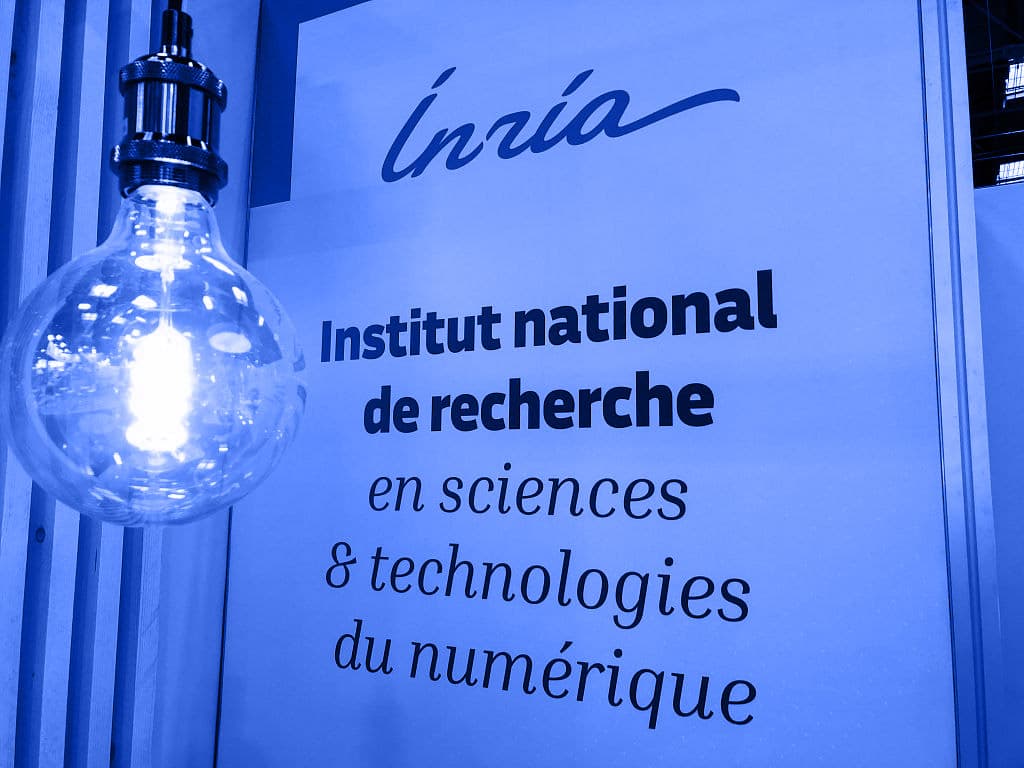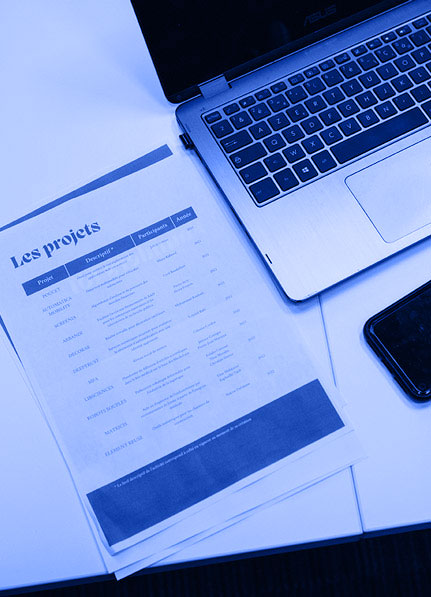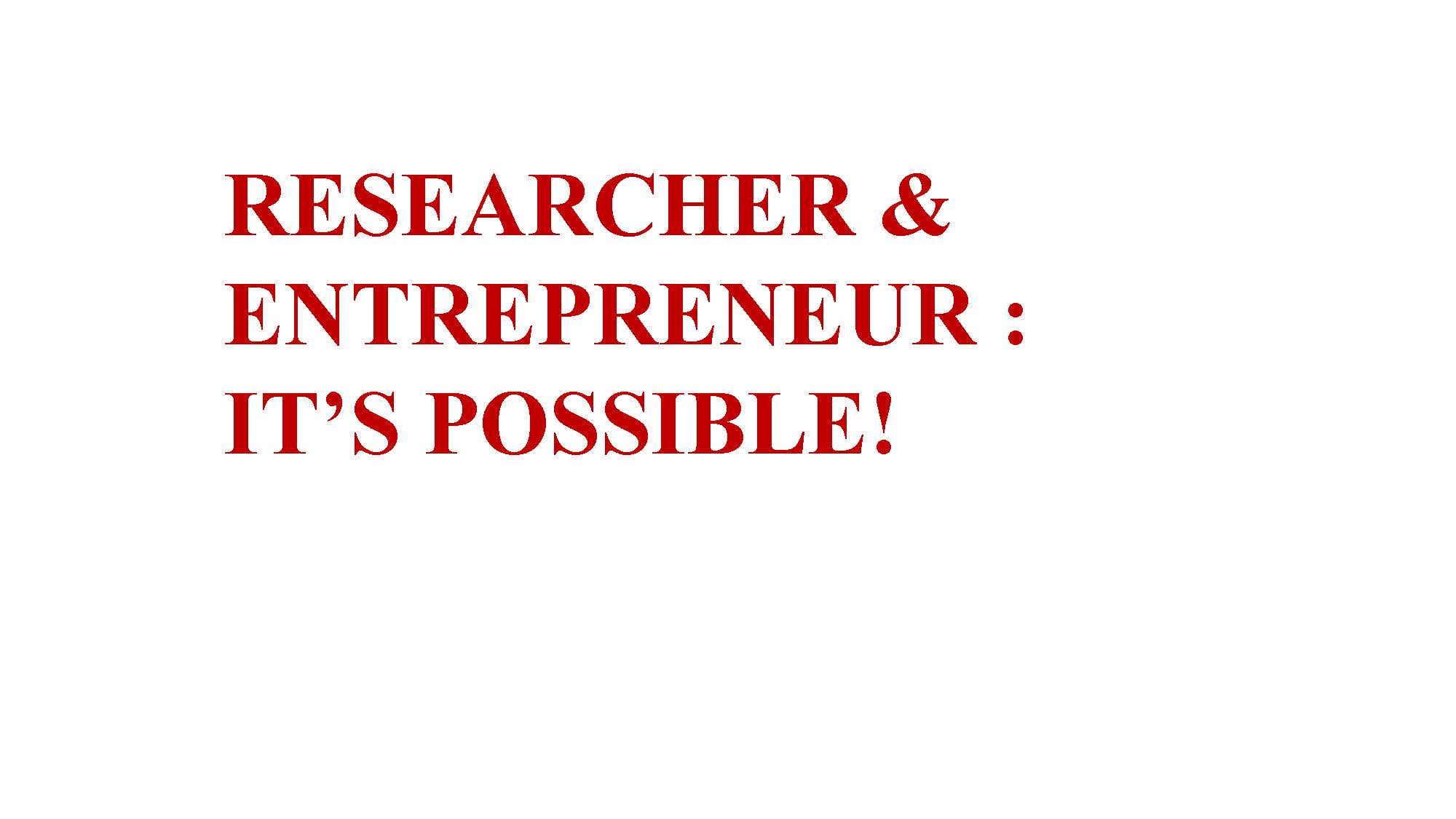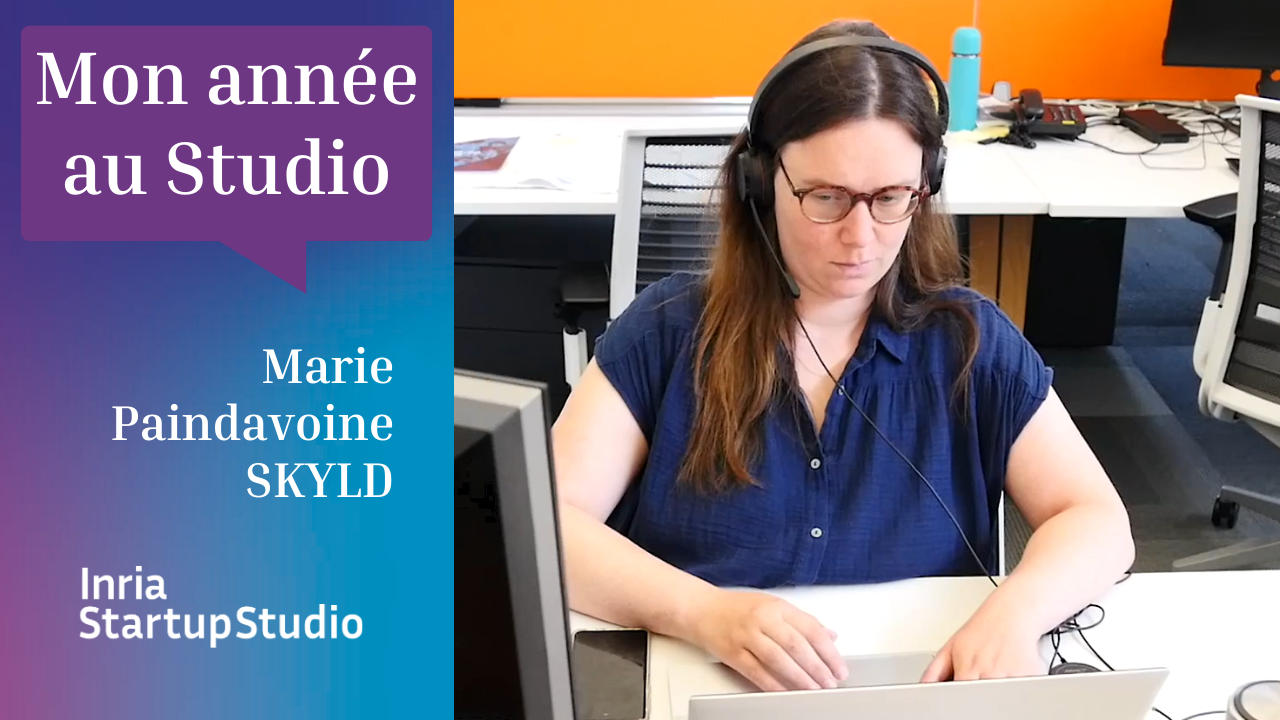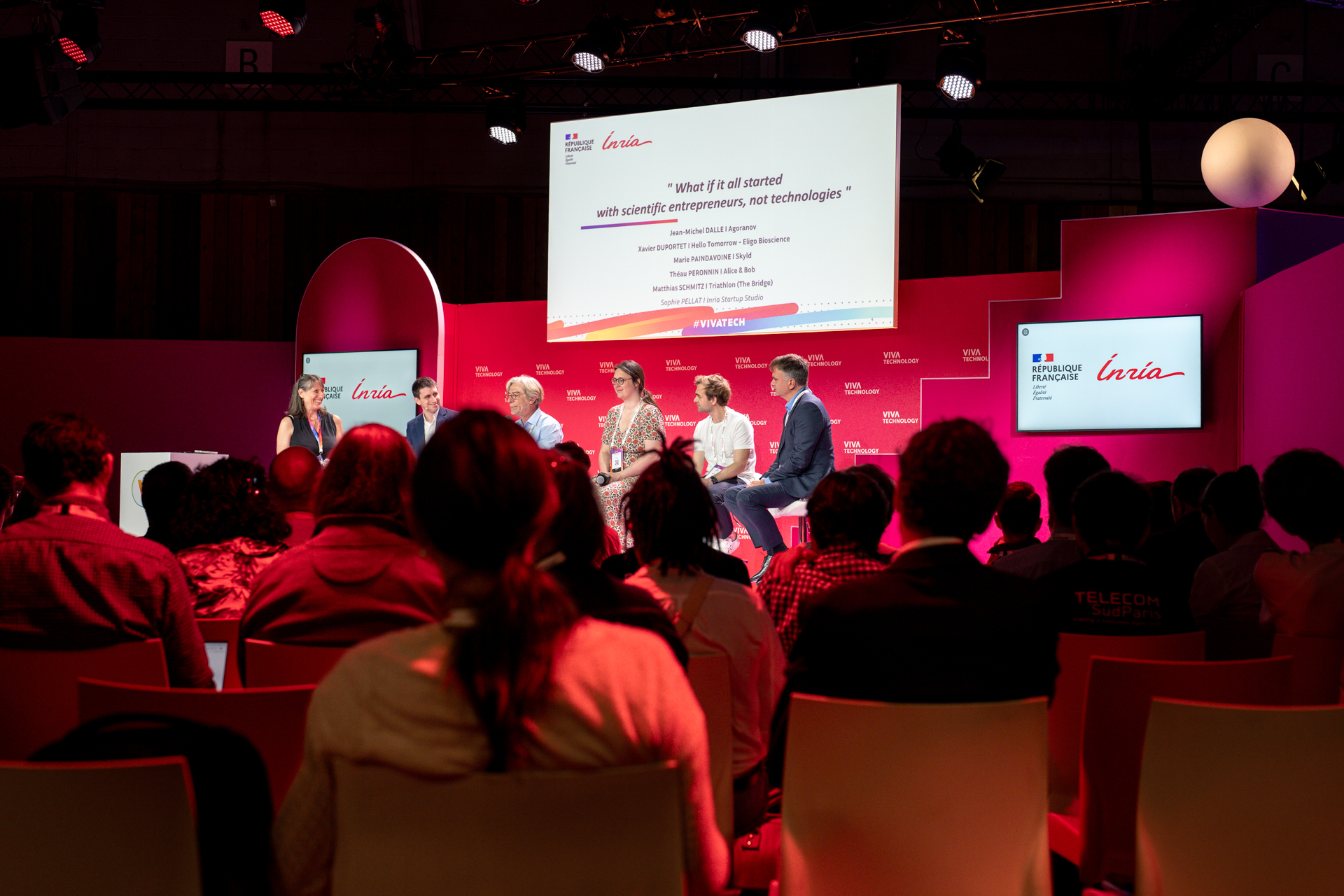
Deeptech in France: are we ready to scale up?
While France excels in scientific research, it struggles to produce start-ups whose growth enables them to achieve scale-up status. What obstacles explain this situation, and how can they be overcome to enable French deep tech to scale up? Explanations was provided during a morning of conferences organised by Inria at…
While France excels in scientific research, it struggles to produce start-ups whose growth enables them to achieve scale-up status. What obstacles explain this situation, and how can they be overcome to enable French deep tech to scale up? Explanations was provided during a morning of conferences organised by Inria at the Vivatech 2025 trade show.
From idea to business, from prototype to industrialisation, from research to disruptive technology, to concrete and strategic applications for the rest of the economy. All these developments are at the heart of the activities of Inria (the French National Institute for Research in Digital Science and Applied Mathematics), and more specifically its start-up studio, which, “out of 700 projects identified over the last six years, has supported 180, including 60 start-up creations. This approach is part of the deeptech plan implemented by Bpifrance, whose objective is to promote the development of 500 start-ups each year. We are currently at 380, which raises the question: how can we go further and scale up?” asks François Cuny, Deputy Director General for Innovation at Inria, in his introduction to a morning of conferences organised in mid-June by the Institute during the Vivatech trade show.
Are European investors too few in number and too cautious?
The first part of the answer came from Théau Peronnin, CEO of Alice & Bob, one of France’s leading quantum computing companies. After pointing out that deep tech is primarily based on scientific research, with all its uncertainties and risks, but also its disruptive potential, the entrepreneur demonstrated that one of the first obstacles to overcome is financing: “In Europe, we apply three simple and harsh rules when it comes to investing. An investor will never put more than 5% of their investment budget into a single start-up, because they have to diversify. ‘Mechanically, a start-up looking for an investor capable of putting €50 million on the table will have to turn to a fund of at least €1 billion. The problem is that ’there is no investor in Europe with such resources who dares to finance technologies that do not yet generate significant revenue!”
Another problem is that investors are primarily looking for a return on investment, which only comes at the point of exit, i.e. the sale of their shares. But to whom? If the sector in which deep tech operates is too strategic, isn’t there a risk that the public authorities will complicate the sale of the company? This possibility could discourage many buyers, but also, upstream, investors capable of financing the development of start-ups in the sector. ‘For me, that’s the root of the problem,’ says Théau Peronnin, who notes both the absence of sovereign European players capable of buying these start-ups and of business angels accustomed to taking risks because they themselves have become wealthy thanks to deep tech and understand how it works.
This, he believes, explains why deep tech start-ups find it difficult to scale up, even though, paradoxically, the excellence of research in France and the presence of players such as Inria, CEA, CNRS and Bpifrance encourage their creation. In fact, the co-founder of Alice & Bob almost regrets an ecosystem where researchers who take the plunge are overly protected: the PACTE law allows them to keep their jobs while devoting up to 50% of their time to their start-up, even though entrepreneurship is all about taking risks: ‘You have to get your hands dirty, put yourself on the line, as the Anglo-Saxons say!’
Because beyond financing, scaling up a start-up is also a matter of people. This was confirmed by Marie Paindavoine, CEO of Skyld, Jean-Michel Dalle, Managing Director of the Agoranov incubator, Xavier Duportet, CEO of Eligo Bioscience and founder of Hello Tomorrow, and finally Matthias Schmitz, Managing Director of The Bridge, the German incubator set up by DFKI, the German equivalent of Inria. They all spoke at the first round table of the morning, moderated by Sophie Pellat-Velluire, co-director of Inria Startup Studio, entitled “What if it all started with scientific entrepreneurs, rather than technologies? ‘We talk about deep tech, deep tech adventures, deep tech start-ups, but technology is a living organism, it is something imagined, built and invented by humans, whereas a company is indeed a living organism that is constantly evolving, driven by its founders,’ Sophie Pellat reminds us. ‘If we don’t look at things through the lens of the founders, then in my opinion we need to change careers,’ agrees Jean-Michel Dalle.
Encourage scientists who want to become entrepreneurs – because that’s where it all starts!
First observation: the scientists behind deeptech start-ups are ‘passionate individuals who are not afraid to devote all their time to a single subject, despite doubts and failures,’ according to Matthias Schmitz. This mindset can be useful when running a start-up, where ups and downs are commonplace. ‘In biotech, less than 2% of projects result in a drug that works. You have to be a little crazy and naive, believe that the impossible is possible, and learn to face the unknown on a daily basis,’ says Xavier Duportet, for whom the most important thing is “not necessarily experience, but above all curiosity and entrepreneurial spirit. However, the compatibility between the profiles of scientists and entrepreneurs does not seem obvious to many. The same goes for the permeability between the two environments, even though the desire to be an entrepreneur is still often taboo in research. It must be said that while passion is the driving force behind both, the ways in which this passion is expressed differ: “The researcher’s job is to understand. To understand the difficulties that need to be overcome in order for it to work. This means that the dopamine pump kicks in very early on. Unfortunately, this is only 5 to 10% of the work: you have to move from prototype to product, make it robust, distribute it, adapt it to the market and reposition it if necessary… You have to find pleasure in other ways, not in the fact of having understood, but in the fact of succeeding in making others understand the value of the product and getting them to adopt it!” remarks Théau Peronnin. Starting with investors!
‘It’s a real challenge to scale up,’ admits the CEO of Alice & Bob. Fortunately, organisations such as Inria Startup Studio exist to support researchers in this change of approach: “Being supported by academic organisations such as Inria and the University of Berkeley in the United States has enabled me to transform my scientific discourse into an entrepreneurial discourse. I already have a thesis in cryptography, a career and a great product: I’ve done the hard part. Learning to pitch my project shouldn’t be a deal-breaker,” explains Marie Paindavoine, who emphasises the value of being advised by mentors from these organisations, who are able to see the big picture when it comes to both the challenges faced by researchers and entrepreneurs… and, above all, to overcome certain preconceptions: “You need to be supported by people who understand you, who have a passion for entrepreneurship, but also the scientific background to understand the value of what you are doing and help you, with kindness, to shape your offering. This is even more important when you are a woman, and a mother in addition. In the United States, I was congratulated for my energy, whereas in France, I was asked if I was going to partner with a CEO, or if my husband agreed to me starting a business despite our children…”
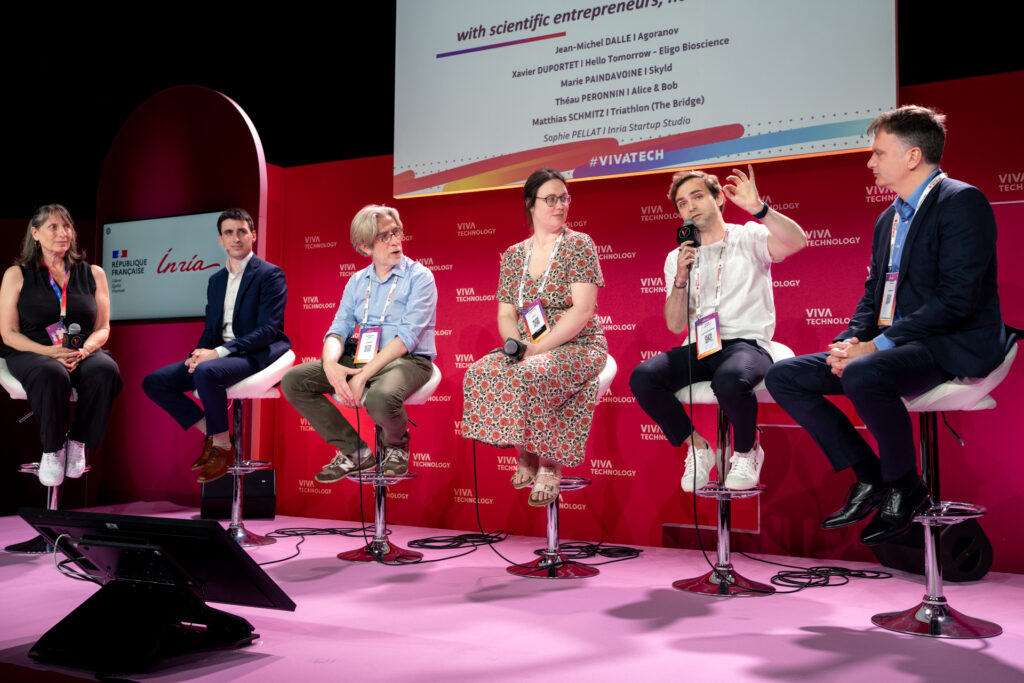
Being able to change one’s perspective, not only by abandoning sexist preconceptions, but also by evolving one’s view of science in business, is essential. Is this what has enabled the United States to stand out in recent decades? Not entirely. But, once again, the long-term perspective and media coverage of scientists and engineers who have become successful entrepreneurs may also explain what distinguishes American deep tech from its European and French counterparts.
These questions were at the heart of the conclusion of the first round table discussion of the morning, as well as the second. Entitled “What if deep tech were too strategic to leave entrepreneurs to face even greater difficulties? ” and moderated by Hervé Lebret, co-director of Inria Startup Studio, it brought together an eclectic panel consisting of economist Antonin Bergeaud, MP Paul Midy, Mehdi Medjaoui, CEO of Olympe Legal, and finally Alexis Robert, General Partner at Kima Ventures.
Better funding for science to prevent brain drain
They also point to the difficulty of translating European academic excellence into entrepreneurship: ‘Many engineers and researchers leave for the United States,’ notes Antonin Bergeaud. It is there that their work is put to practical use by companies: “All patents filed must cite the academic references used. We can see that in Europe, we are on the same level as the United States in terms of generating ideas. But these ideas are not cited in French or European patents. They are cited in Chinese or American patents! ‘ Once again, access to financing is mentioned: ’Fundraising in Europe is three times lower than in the United States, even though we have virtually the same GDP per capita overall,” explains Paul Midy, who points to the virtues of the pension fund model, which encourages long-term investment. This is exactly what research and deep tech need: “In France, long-term savings, which can be likened to capitalisation, amount to €200-300 billion. In the European Union, the figure is €6 trillion, 70% of which comes from Northern Europe. In the United States, pension funds amount to €42 trillion, available over 30 or 40 years.” This is enough to comfortably finance the riskiest sectors, while attracting the best talent from across the Atlantic. ‘I call for a Common Innovation Policy (CIP) that is at least as ambitious as the Common Agricultural Policy (CAP), which accounts for 30% of the European budget, compared with 10% for innovation,’ says the MP.
Finally, they also mention the necessary change in perspective that financing deep tech implies, compared to more conventional tech: “Investors often expect the CEO of a start-up to be a business school graduate. This worked as long as tech was “commoditised”, i.e. the company operated on SaaS models, with advanced planning. But today, artificial intelligence is leading to a return to science. We need to think outside the box, like the CEOs who launched giants such as Sam Altman, Elon Musk and Mark Zuckerberg, who are all computer scientists. We need to break the mould,” warns Alexis Robert, noting that a company with a standard business model attracts more capital than a company without a business model but launched by researchers who may revolutionise their sector, as is the case with Arthur Mensch, Guillaume Lample and Timothée Lacroix, the creators of Mistral AI.
Three researchers who, without having attended business school, were able to quickly master the codes of entrepreneurship and venture capital, as Mehdi Medjaoui explains: “They raised €100 million in three months based on a few slides! All because they had ambition. The entrepreneur notes what is perhaps one of the differences with the United States that explains the difficulty in scaling up: “I was talking to a French entrepreneur who is developing AI for image analysis. What for? To check the conformity of car parts and reduce accidents. OK! In California, the same person would have replied that they were going to save tens of thousands of lives and tens of billions of dollars thanks to this! This highlights a fundamental difference between the two continents: ‘In Europe, we are still in an ecosystem where we make technology with money, whereas others make money with technology.’
Responsibility, a prerequisite to be defended
But the obstacles limiting the growth of scale-ups within the European deep tech ecosystem are not limited to access to financing or a poor mindset. The issue of standards and other regulations was also raised by this second panel, with differing opinions: ‘They are not necessarily inappropriate or illegitimate, but when they pile up, they take up a lot of staff time and therefore a lot of time in companies,’ notes Antonin Bergeaud, echoed in part by Paul Midy: “If 20 to 30% of developers’ time is spent dealing with regulatory issues, it’s stifling. It shouldn’t exceed 10%,‘ says the MP, acknowledging the possible existence of ’regulatory overload‘ linked to the accumulation of the DSA, DMA and AI Act. However, he considers these texts and standards to be legitimate, both in the name of public safety and in response to environmental challenges. The challenge is to make them easier for entrepreneurs to understand. These standards still need to be respected by all players in the ecosystem, points out Mehdi Medjaoui, who believes that OpenAI should have paid nearly $1.7 trillion in copyright fees to train its models.
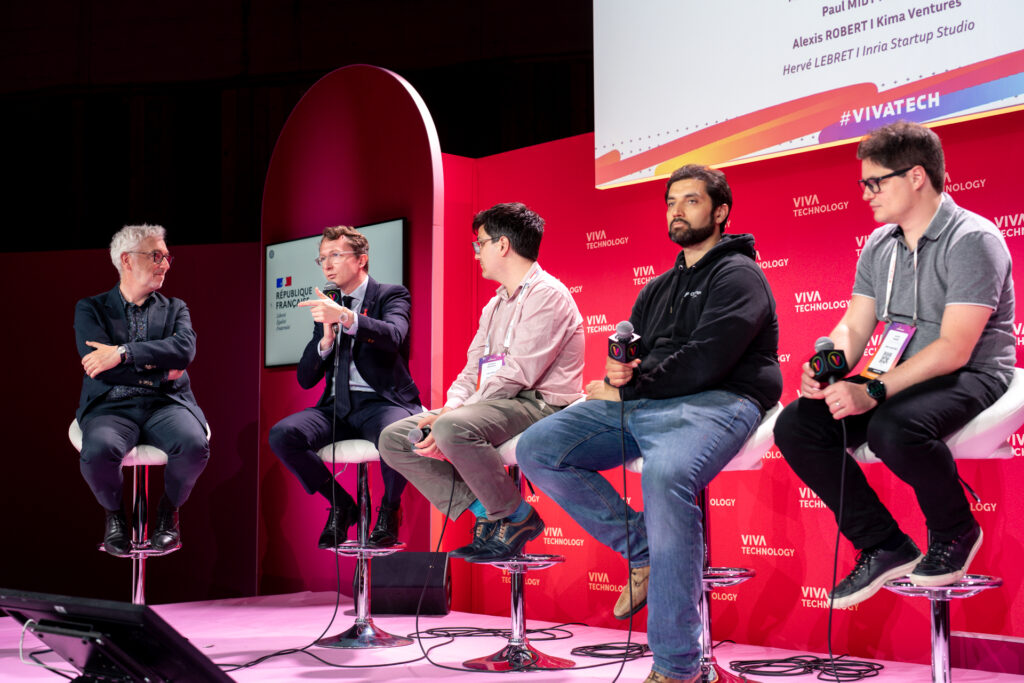
This serves as a reminder of an obvious fact: innovation must take place within a responsible framework. Responsible in terms of the law, society, the environment, but also gender equality, given that the difficulty of attracting female researchers to entrepreneurship was mentioned several times during the morning’s proceedings. ‘With France 2030, we are financing thousands of start-ups,’ said Bruno Bonnell, Secretary General for Investment at France 2030, in his closing remarks. “They are shaping the way we will live tomorrow, at a time when we are experiencing a revolutionary period, comparable to the invention of tools and then machines. We are entering the era of robots, whether software or hardware. They will profoundly change fields such as medicine, with AI capable of identifying diseases better and faster than a doctor.” This leads us to question the relationship of trust we will have with these machines, while reinforcing the need for a framework, if only an ethical one. ‘Some criticise the GDPR, saying that it limits the potential of our deep tech compared to the United States or Israel, for example. But we must bear in mind that, regulation or not, it is a model of society that we are defining through deep tech.’
Startups: the fruitful Franco-German collaboration at the heart of Vivatech
The contribution of Matthias Schmitz, Managing Director of The Bridge incubator linked to DFKI, Inria’s German partner and specialist in artificial intelligence, is part of the increasingly close collaboration between the two entities. These exchanges have been strengthened since 2020, when a memorandum of understanding on AI was signed, aimed at bringing existing projects closer together and creating new projects in various fields such as industry, health, education and climate.
Furthermore, this presentation, given as part of a conference at Vivatech, is far from insignificant, as the event has become a catalyst for Franco-German cooperation: since 2022, DFKI and Inria have been participating in the joint stand set up by the two countries at the fair, while the 2024 edition saw the signing of an agreement between Inria Startup Studio, DFKI and Triathlon, the incubator for the Saarland region, to strengthen cooperation between these entities, facilitating technology transfer and the emergence of startups. This has resulted in the organisation of a summer school on entrepreneurship, the participation of project leaders from one organisation in key events organised by the other, and the exploration of opportunities for co-incubation.
This momentum will continue in 2025, as Bruno Sportisse, CEO of Inria, explains: “This year, we have broadened our scope by signing a partnership with the Fraunhofer Gesellschaft to facilitate Franco-German dialogue on AI in industry. It highlights a joint commitment by both countries, born out of the impetus provided by the French Embassy in Berlin shortly before the World AI Summit in February. Such partnerships demonstrate our maturity and our involvement in ecosystem dynamics, which cannot be limited to the academic world: the major digital countries are winning because they have public/private ecosystems that function smoothly and seamlessly. Trying to break down barriers is part of our daily routine and remains important.”
Publication date: 11/07/2025
Want to get started ?

